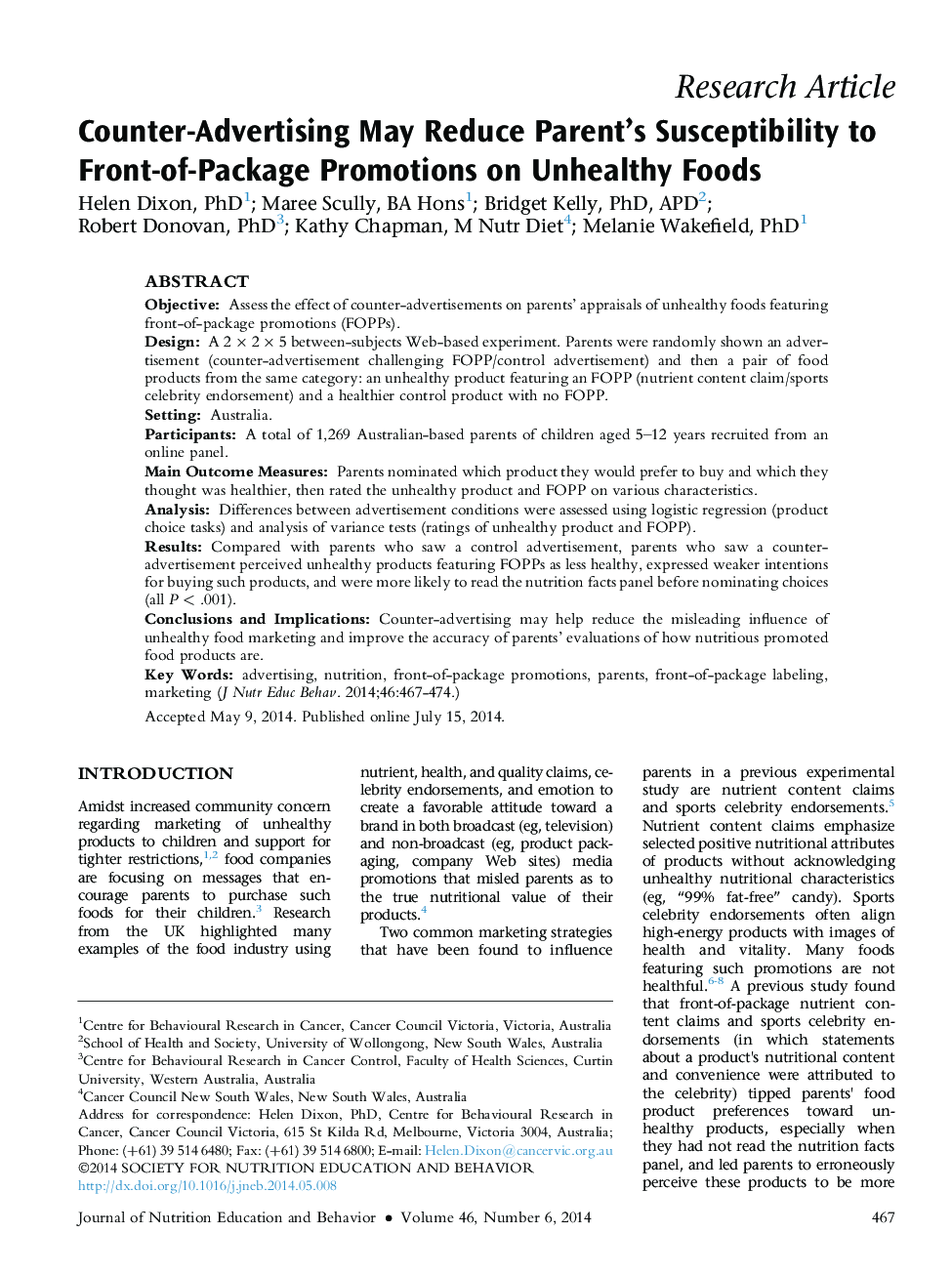| Article ID | Journal | Published Year | Pages | File Type |
|---|---|---|---|---|
| 361165 | Journal of Nutrition Education and Behavior | 2014 | 8 Pages |
ObjectiveAssess the effect of counter-advertisements on parents' appraisals of unhealthy foods featuring front-of-package promotions (FOPPs).DesignA 2 × 2 × 5 between-subjects Web-based experiment. Parents were randomly shown an advertisement (counter-advertisement challenging FOPP/control advertisement) and then a pair of food products from the same category: an unhealthy product featuring an FOPP (nutrient content claim/sports celebrity endorsement) and a healthier control product with no FOPP.SettingAustralia.ParticipantsA total of 1,269 Australian-based parents of children aged 5–12 years recruited from an online panel.Main Outcome MeasuresParents nominated which product they would prefer to buy and which they thought was healthier, then rated the unhealthy product and FOPP on various characteristics.AnalysisDifferences between advertisement conditions were assessed using logistic regression (product choice tasks) and analysis of variance tests (ratings of unhealthy product and FOPP).ResultsCompared with parents who saw a control advertisement, parents who saw a counter-advertisement perceived unhealthy products featuring FOPPs as less healthy, expressed weaker intentions for buying such products, and were more likely to read the nutrition facts panel before nominating choices (all P < .001).Conclusions and ImplicationsCounter-advertising may help reduce the misleading influence of unhealthy food marketing and improve the accuracy of parents' evaluations of how nutritious promoted food products are.
